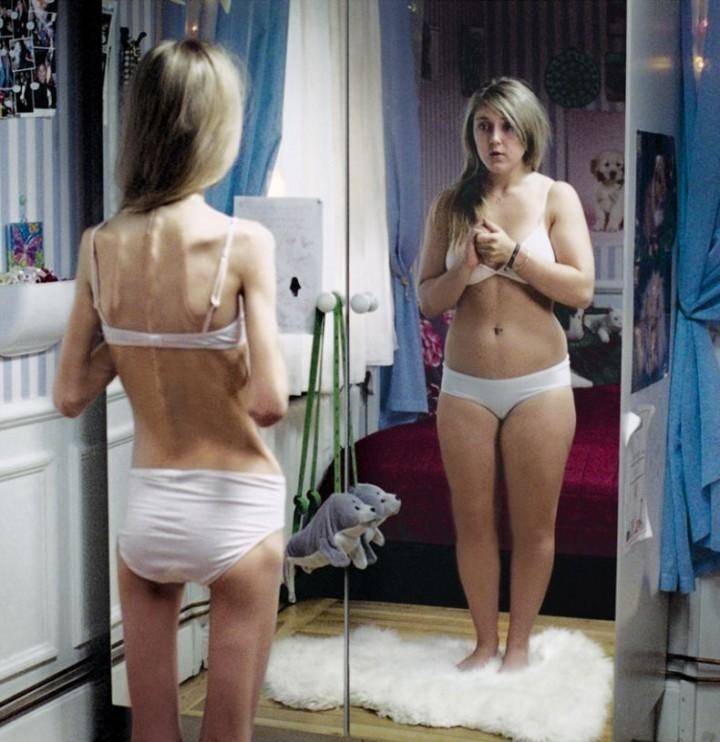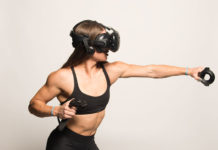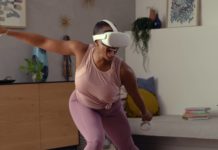The many health and fitness benefits of virtual reality continue to add up! A recent study has proven that the avatars people use while in VR experiences can actually be effective for helping people improve their behavior to be more healthy! If you’ve not been paying attention, avatars are what you see when you’re in a game that represents yourself. They’re you, only virtual and because they’re virtual, they can be presented in any number of different ways. For instance, it’s possible to accelerate time or transcend boundaries of the physical world when working with an avatar when there’s a character that looks like a human, but they are living in a non-realistic universe. In simpler terms, your avatar could simply look happier than you normally are because it can be set to be smiling more often, or your avatar could look more fit and active than your current health level in real life.

Despite the non-realistic universe avatars tend to inhabit in VR experiences, they are still able to interact on a human level. They’ve been designed to mimic the dynamics of natural social interactions, which heightens engagement and involvement. People controlling an avatar feel connected to it and the universe in which it resides, even if that universe has features our own world does not. What does that mean for you? How your avatar lives, you’ll likely gravitate towards living, too. If it’s healthier, you might be as well.
Where It Began
The concept of using an avatar to impact behavior began with something known as the Proteus Effect. Researchers determined that when individuals were aware of certain characteristics and traits of an avatar and understood what was expected of their behavior based on these traits, they would continue to engage in those behaviors.
An example of this is an individual assigned to control an avatar that is larger in stature. The controller tended to be more aggressive when negotiating than controllers who were assigned to smaller avatars. Another example is when a player in a gaming situation is assigned the character of a superhero and they tend to act out in heroic fashion and not just because the gameplay directs them to.

According to researchers, “This is the likely result of conforming to normative expectations that taller people are more confident and likely to be in a positions of power.”
What Does This Mean for Improving Health?
In addition to the novel characteristics that made it possible to do things that are not an option in the real world, the ability of avatars to influence behavior in the “real world” offers promising health consequences. Researchers have concluded that even a virtual reality experience that is completely unrealistic could result in real world health improvements and affect the controller’s attitude and behavior once the VR experience has ended. Essentially, someone controlling a healthy attitude could experience things that a healthy person would experience, and they would be left with the motivation to move toward this healthier lifestyle in real life. While more research is needed, these findings speak volumes to what we could enjoy from VR experiences if they are shaped by fitness-minded developers.
Seeing a Healthy Image of Oneself Has a Profound Effect on Attitude and Behavior
Avatars provide a dynamic and highly controlled method for delivering health information in a novel way. And because time and other factors can be manipulated in a virtual world, the experience can be extremely powerful. For instance, imagine what it would be like for someone who has been overweight for most of their life to control an avatar modeled after themselves, but at a healthy weight. They could experience the VR world at their ideal weight, hopefully providing them with motivation to make lasting changes in the physical world. In the past, a person could only imagine themselves in a healthier state of being. On the flipside of that, imagine what it would be like for an anorexic woman to control an avatar that was at a healthier weight. The altered reality impacts on how the mind thinks about it’s actual self, resulting in positive change.

The ability to observe and interact with VR representations makes people feel present in a situation and gives them the confidence needed to achieve their goals. It also encourages them to consider the health risks of not making changes. Ultimately, these VR experiences promote desired health behaviors that are longer lasting than many of the temporary health fixes that occur today. Researchers are also considering if it might be beneficial to combine these discoveries with VR gaming to promote more physical activity. We’re anxiously awaiting more experiences that pursue this approach and the subsequent fitness results that will follow. We’ll continue to follow this research and trend and report as more happens.






Comments are closed.